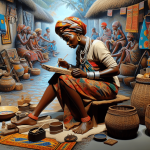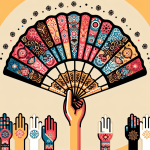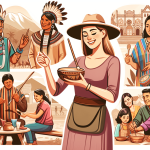Zimbabwe, a diverse country in southern Africa, is home to a rich tapestry of languages. With over 16 official languages recognized by the government, Zimbabwean society is truly multilingual. Shona and Ndebele are the most widely spoken languages, but there are several others like Chewa, Kalanga, and Tonga that contribute to the linguistic diversity of the nation. From the bustling streets of Harare to the quiet villages in the countryside, Zimbabweans communicate in various tongues, reflecting the cultural heritage and history that define this fascinating country.

Official Languages
English
In Zimbabwe, the official language is English. This is the primary language used for formal affairs, government activities, and legal documentation. English also serves as the medium of instruction in schools and universities. As a result, it plays a vital role in various aspects of Zimbabwean society, from official communication to business transactions.
Major Indigenous Languages
Shona
Ndebele
Alongside English, Shona and Ndebele are the major indigenous languages in Zimbabwe. Shona is spoken by the majority of the population, particularly in the eastern and central regions of the country. It is further divided into several dialects, such as Zezuru, Karanga, Manyika, Korekore, and Ndau. Ndebele, on the other hand, is mainly spoken in the southwest, primarily by the Ndebele people who are descendants of the Zulu Kingdom. Both Shona and Ndebele hold significant cultural value and are widely spoken by the respective ethnic groups.
Minor Indigenous Languages
Tonga
Venda
Kalanga
Nambya
Sotho
Chewa
Chibarwe
Manyika
Tswana
Xhosa
In addition to the major indigenous languages, Zimbabwe is also home to several minor indigenous languages. These include Tonga, Venda, Kalanga, Nambya, Sotho, Chewa, Chibarwe, Manyika, Tswana, and Xhosa. While these languages may have a smaller number of speakers compared to Shona and Ndebele, they are essential in enriching the cultural diversity of the country and connecting various communities.
European Languages
Portuguese
As a former colony of Portugal, Portuguese continues to have an influence in Zimbabwe. While not as widely spoken as English or the indigenous languages, Portuguese can be heard in certain communities and is often taught as a foreign language in academic institutions.

Asian Languages
Hindi
Gujarati
Urdu
Chinese
Zimbabwe is also home to a small population of Asian communities, mainly of Indian and Chinese descent. Consequently, languages such as Hindi, Gujarati, Urdu, and Chinese are spoken among these communities and play a role in maintaining their cultural heritage and facilitating communication within their respective groups.
Other Immigrant Languages
Afrikaans
Farsi
In addition to the languages mentioned above, Zimbabwe is a diverse country that has welcomed immigrants from various parts of the world. As a result, languages like Afrikaans, spoken primarily by the Afrikaner community, and Farsi, spoken by the Iranian community, can also be heard in certain pockets of the country.

Sign Language
Zimbabwean Sign Language
Zimbabwean Sign Language (ZSL) is the preferred means of communication for the deaf community in Zimbabwe. ZSL has its own unique grammar, vocabulary, and syntax, allowing individuals who are deaf or hard of hearing to express themselves and engage with others in their community.
Use of English
Official and business language
Education
Media
English serves as the official language of Zimbabwe and is commonly used in government, legal, and business communication. It is also the language of instruction in schools and universities, ensuring that the younger generation is proficient in English. Additionally, English dominates the media landscape, with newspapers, television programs, and online content being primarily produced and published in the English language.
Prominence of Shona and Ndebele
Most widely spoken
National languages
Significance in cultural identity
Literature and arts
Shona and Ndebele, as the most widely spoken indigenous languages in Zimbabwe, hold immense prominence in the country. Shona, with its various dialects, is spoken by a majority of the population, while Ndebele is predominant in the southwest. Both languages are recognized as national languages, representing the diverse cultural and ethnic heritage of Zimbabwe. They play a crucial role in strengthening cultural identity, fostering a sense of belonging, and preserving traditional practices. Furthermore, Shona and Ndebele have vibrant literary and artistic traditions, with numerous poems, songs, and written works showcasing the rich cultural heritage of the people.
Diversity and Importance of Indigenous Languages
Role in preserving cultural heritage
Community communication
Language revitalization efforts
The indigenous languages of Zimbabwe, including Shona, Ndebele, and the minor languages, hold immense importance in preserving the cultural heritage of various ethnic groups. They serve as carriers of history, values, and traditions, ensuring that ancient knowledge and customs are passed down from generation to generation. These languages also play a vital role in community communication, enabling people to express their thoughts, emotions, and ideas in their mother tongue, fostering a deep sense of connection and understanding. Recognizing the significance of indigenous languages, efforts have been made to revitalize and promote their usage through language programs, educational initiatives, and cultural events. These endeavors aim to ensure the sustainability and vitality of these languages for future generations to come.
In conclusion, Zimbabwe boasts an array of languages that reflect its cultural diversity and historical connections. From the official language of English to the major indigenous languages of Shona and Ndebele, as well as the various minor indigenous, European, Asian, and immigrant languages, Zimbabwe is a linguistic tapestry. Each language has its own unique role in society, shaping identity, facilitating communication, and preserving cultural heritage. As Zimbabwe continues to evolve and embrace its multicultural landscape, the importance of language diversity and inclusivity remains a fundamental aspect of its national and cultural identity.












